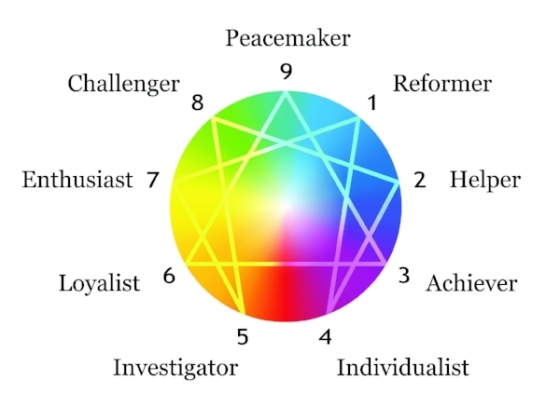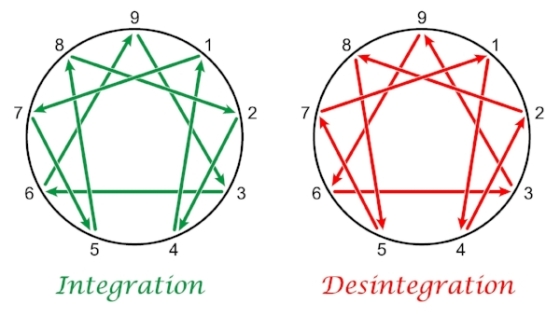Life is full of surprises! What was your first significant change? It was probably your birth into the world.
Life transitions are hard. The moment, you arrive in the world you experience your first significant change. It must be a shock to all the senses being forced out into this alien world. The process of birth is just the beginning of your adventure.
Life transitions include:

Birth:
Can you imagine being in the comfort and safety of your mother’s womb? It is nice and warm. With all your needs met, you are secure. Then imagine suddenly without warning being pushed out into a foreign world.
For the first time in your life, separated from your mother you are alone. Can you imagine the sense of abandonment you felt? You have to cry to get your needs met.
If you could remember this part of your life, it might leave you with some unsettling dreams. Coming into the world Is a massive change. Any change takes a period of adjustment whether or not you label the transition as good or bad.
It might be like being kidnapped and thrown out of a plane with a parachute into a jungle where you have no idea where you are. How would you be feeling?
Childhood years:
How much of your early years do you remember? Some of what you remember may come from stories that your parents told you. Now imagine what it was like for you to learn to walk? What was it like to learn to ride a two-wheeler bike? What do you remember?
You are learning to become more independent. These are never easy years. Imagine how many times you fell over before you were able to walk on your own. Learning to walk, is like most new things you learn to do, takes a lot of practice.
Do you remember learning to ride a two-wheeler bike? Did you first start with learners wheels? How many scrapes did you have before you were able to ride down the street without falling off the bike? Give your child self-lots of appreciation for all the risks they took to take their place in the world. Learning new skills is not easy!
Teen Years:
Take a moment to reflect on all physical, social, emotional and hormonal changes that happen during these exciting years. Your body changes so quickly it can be confusing for you to know how to behave.
Sexual desire in you comes to life! You enjoy these new feelings, and yet they baffle you. You pick up from the adults in your life that this is something to feel ashamed. You are mixed up. How can something that feels so good be so wrong?
You might even feel growing pains in your bones because you are changing so fast. You are not quite sure if you are still a child or an adult.
Peer pressure at school can be challenging. You want to be cool with your mates.
Life transitions are hard. If you are not one of the cool kids, you can feel very isolated. You can feel invisible. Bullies can make your life difficult. Anxiety can overtake your life because you feel like there is something wrong with you.
Moving away from home:
Do you remember moving away from home for the first time? It probably is one of the most exciting times in your life? Yet, leaving the safety of home is perhaps one of the most stressful times in your life.
For the first time, you have to take care of your own needs. You need to wash your own clothes. You need to cook your own meals. You have to manage your own schedule. Even if this feels good, change of this magnitude takes a lot of energy.
If you moved to another city, there is the stress of learning to get around a new place. Where do I need to go to get groceries? How are you going to get around?
Then there is the stress of money. When you lived at home, your parents took care of most of your needs. You will have to learn to budget. You might even need to find some part-time work to help you to make ends meet.
Marriage:
Marriage is one of the most significant decisions you will make in your life. Once you get past the falling in love stage where everything seems exciting; the success of your marriage will depend on your commitment to growing individually and as a couple.
Your relationship will find strength, depending on how well you are able to know your own needs, show a willingness to compromise, seek to bring out the best in each other and communicate well. Communication is probably one of the most significant challenges you will face.
It takes time to get used to living with someone else. You need time to find your new rhythm as a couple. You will need to find ways that honor the needs of both of you. You will need to experiment until you find a balance that works for you both.
One of the many challenges of marriage is that you get to see each other in the worst and best of times. You get to experience each other’s peculiarities. Maybe the things that you once thought to be amusing is now annoying.
Do you like conflict? I am guessing you don’t. There is guaranteed to be conflict in your relationship. Conflict happens when there are two people with different opinions. You as a couple need to find a way to talk so you can see solutions that will work for you both. Trying to impose your point of view may fix things for the short time, but it will eventually backfire when the person who was imposed on pushes back.
Having children:
If you think getting married is complicated, then having children is even more challenging. When a child arrives into your life your world dramatically changes. It is your child/children who are the center of your attention.
There will be a time when you get little sleep. You will no longer be able to do as you please. If you want to have a date you need to find someone to care for your child or children. Your children will be on your mind for the rest of your life no matter what they do good or bad.
If you haven’t had any conflict about the division of labor in your family having children will likely raise it. Hopefully, you have thought about it before the child arrives. Are you going to equally share the work including child care, cooking, cleaning, shopping, outdoor work and more?
Sharing the labor doesn’t mean you have to divide all tasks in half. But you need to come to an agreement that is fair to both parties. Watch out that the women don’t take on more than her fair share.
Life transitions are hard. Make sure you take time to care for yourself, besides caring for your children and partner. A healthy you is the best gift you can give to the family.
Divorce:
There is no such thing as an easy divorce. Even the most respectful ones take a lot of energy. There is nothing shameful about getting divorced. I hope you would have tried to resolve the issues before you made the final decision.
Sometimes your relationship needs to come to an end for many reasons from the loss of trust, affairs, domestic violence and sometimes people just grow apart.
Divorce impacts the relationships you have with the friends and family you shared with your partner. Depending on how well the relationship ends will determine who you are able to stay in touch with.
Divorce impacts your children. No matter how well you do it, the children’s lives are going to be changed forever. If you are your partner were not getting along, the divorce will still be better for the children.
All your routines get changed. Tasks you used to share you have to do yourself. There is no one to ask about your day. There is no one to share something important that took place at work or at home. Money can be a problem if you are the one that stayed at home with the kids or you had the lowest paying of the two or more jobs.
During times of divorce, your emotions will be up and down. There will be days when you will find it hard to get out of bed. One moment you will be crying, the next laughing and the subsequent angry. It is like being on an emotional roller coaster.
Death of loved ones:
Grieving takes a lot of energy. When someone that is close to us dies, it is never easy. It especially tricky when a person dies young from disease, accident, murder and/or suicide. Even when a person dies after a beautiful long life, we all must go through grief.
There is no way around grief. The only way is to go through it. It can take up to a year to go through the cycles of loss. Our lives will never be the same, but you will find a way to move ahead in life. Here is the process we go through, not always in this order:
· Denial
· Anger
· Depression
· Bargaining
· Acceptance
You may be tired. You may be moody. You may be angry. You may have a hard time accepting what has happened.
Give yourself lots of time to move through this. This is not a time to make big decisions. Find friends, religious leaders, counselors and coaches to help you to explore these intense feelings. Grieving is hard work but so worthwhile.
Retirement:
Retirement is all about transition. Do you know what you are going to do when you retire? You might decide to start your own business and work, only, when you want. There may be organizations that you have always wanted to volunteer for and have never had the time.
If you are one of the people who has spent the majority of their working life focussed on their job, retirement could be a very stressful time. You may feel a loss of identity. You might feel depressed. So it is better for you to start volunteering and finding other interests before you retire.
You are likely to have more time with your spouse. This may be great, but you may find your spouse driving you crazy. Does it feel like they are under your feet too often? Each of you will want to discover your own interests so that each of you has time apart. You will also have different experiences to share with each other.
You might find it challenging to organize your day now that you are retired. There is no longer any requirement for you to be at work at a particular time. You might want to set a regular schedule for yourself each week. Like when you are going to get up? What are you going to do?
It is at these times of significant changer in our lives we are more likely to face depression and other mental health issues. If you are getting down don’t be afraid to ask for help.
Give yourself time to get used to your new life. Remember life transitions are hard. Make the best of this season by seeing this as an opportunity to re-focus on what is really important to you.
Your life is full of transitions. No matter what change you are going through it takes time and energy to make the adjustments.
You may be one of many who do not realize the energy it takes to go through:
· Birth
· Childhood
· Teen years
· Moving away from Home
· Marriage
· Children
· Divorce
· Death of Loved Ones
· Retirement

Life transitions are hard! So during these times of change, you may feel like you are going crazy. I assure you, you are not going crazy. The only way to get through these times of change is to fully experience the ups and downs that your body, heart, and mind will take you through.
Give yourself space to make your ways through these vulnerable times. Let others know what you are experiencing. Allow yourself more time to sleep. Eat well. Enjoy time with good friends and family. Cry when you need to. Laugh. Seek support when you are feeling alone.
Congratulations, you have made it this far in life. You have been through a lot!
You have become a stronger and more compassionate person through all of your life experiences. You are the amazing person you are because of all the ups and downs you have faced. Go and celebrate each moment of life. Be kind to yourself, with gentleness, when you are facing difficult times and truly celebrate the good times.
Roland Legge offers presence based life coaching through REL Consultants for individuals, couples, and organizations to help them to be the best they can be. For more information, please arrange for a free 30-minute discovery call by phoning Roland at 1 306 620-7478 or book your appointment online at https://www.relconsultants.com/coach-roland-legge Please click on “Discovery Call.”
Originally Published by REL Consultants http://www.relconsultants.com




